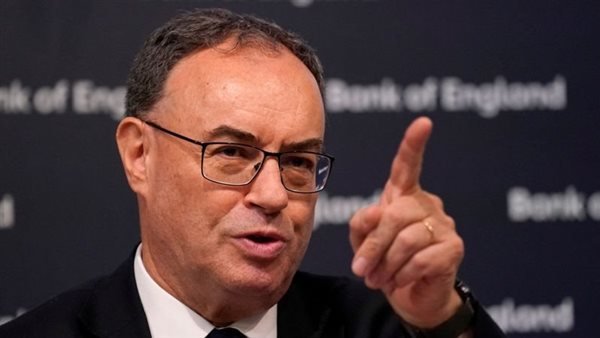
Bank of England Governor Andrew Bailey is stifling a crucial debate about where interest rates will settle, in a move that could sow confusion over the stance of monetary policy, said Gertjan Flieg, a former policy maker at the Bank of England.
Fleig stressed that interest rate setters at the Bank of England “need to take a view” on when to stop cutting interest rates. The neutral level, known as r*, is the point at which policy can no longer restrain growth or stimulate the economy. Borrowing costs have been reduced to 4.75% from 5.25%, and markets expect them to reach 4% by the end of 2025.
Fleig, an outside member of the Monetary Policy Committee between 2015 and 2021 who now works at hedge fund Millennium, said the debate about when to stop should be brought out into the open.
He continued: “These discussions are really productive, and when we say ‘we shouldn’t talk about r*, we should stay silent,’ we suppress this whole debate,” he said. “We’re letting people get away with having one committee member think it’s a zero, another committee member thinking it’s a 4, and not having a discussion between the two. That’s a huge missed opportunity.”
Fleig, who confirmed he was speaking in a personal capacity, was speaking at the Bank of England’s supervisors’ conference in London on Monday, where he also attacked Bailey’s outreach efforts during the inflation shock two years ago. He said the governor further complicated the task by failing to communicate clearly.
He added: “The main message should have been that the Bank had the tools to bring inflation back to target. But instead, other messages ended up distracting from that point. We heard, and I quote, that the Bank was helpless in the face of energy price shocks and that Workers shouldn’t be asking for pay raises, and forecasting models have failed us,” Fleig said.
He continued: “This may seem like a shift of blame, while what we need is reassurance that no matter how much inflation deviates from its path, the central bank will return it to 2%.”
The Bank of England came under intense political pressure during the crisis, which saw consumer prices rise by 11.1% at its peak.
Bailey told lawmakers during questioning in May 2022 that people should “think and reflect” before demanding wage increases, and added that “there’s not much we can do” about rising energy prices.
Simple communication
Fleig said Billy should have kept communication simple and pushed back against criticism more forcefully. He added: “I have not heard any strong, systematic response up to this point. The fact that inflation is moving away from the target in the wake of a large, unexpected shock is not a sign of failure.”
He continued: “You cannot judge the quality of a ship captain by how much he deviated from his course during a storm. Rather, you can judge him by his ability to correct this course and reach the intended destination.”
The bank is now in the process of tearing up its forecasting model, which was found not fit for purpose in a review earlier this year by former Fed Chairman Ben Bernanke.
Fleig said the BoE’s errors were not necessarily caused by failures in the model, and that the bank had failed to produce a fair analysis of any deficiencies in the modeling process.
He stressed that models should not predict unexpected events, but rather predict the economy conditional on those conditions. He added that the bank should have re-run the models assuming shocks to the energy sector and supply chain, like the European Central Bank.
Fleig said the ECB succeeded in capturing a significant amount of the inflation shock after rerunning its models using subsequent events. “The idea that there was a pain-free option, and that inflation could have been prevented without crushing the economy, does not stand up to scrutiny,” he added.



